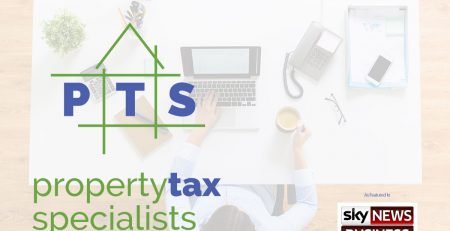6 Things to Consider When Buying Commercial Property With SMSF
Buying commercial property through a self-managed super fund (SMSF) can be a complex process.
There are many things to consider, such as the fact that your SMSF can invest in the business premises but not in your business itself.
And while there are several benefits for purchasing commercial property investments this way, there are also strict compliance guidelines you need to be aware of.
So, this blog post will provide an overview of buying commercial property with SMSF and outline some of the key considerations that must be taken into account before buying.
Benefits of Using Your SMSF to Purchase Commercial Property
While the Australian Taxation Office (ATO) requires strict compliance with its SMSF property guidelines for residential property and commercial property investment, two notable benefits are afforded to commercial real estate owners that aren’t to residential property owners.
When it comes to purchasing a residential investment property, it can’t:
- be purchased from any fund members or member relatives;
- be a place of residence for fund members or related parties; and
- be a rented residence for fund members or related parties.
However, the same related party rules don’t apply to commercial properties.
In fact, you can use your self-managed super fund to invest in your business premises, as long as the commercial property is primarily used to carry out your business activities.
In other words, your business can rent the commercial property that your SMSF invests in, and the rent is paid into the SMSF.
Beyond the benefit of investing in your own business property and having the rent benefit your superannuation fund, tax on rental income is only 15%. And if you decide to sell the property after one year of owning it, the capital gains tax obligations will only amount to 10%.
But while there are several benefits for purchasing a commercial property using your SMSF, there are also some considerations you need to factor in before jumping into it.

1. The Commercial Investment Must Satisfy the Sole Purpose Test
Regardless of the type of property you invest in (commercial or residential property), it must satisfy the fundamental purpose of the SMSF: to provide retirement benefits to its members.
According to the ATO, this is known as the sole purpose test.
So, any decision around using the SMSF to purchase commercial property investment must benefit the retirements of its members.
If members fail to comply with the sole purpose test and other legal requirements, the ATO is authorised to impose various penalties.
2. Your Commercial Premises Must Be Business Real Property
As previously mentioned, commercial real estate investments don’t have to comply with the same related party acquisition rules as residential investment properties.
However, to be exempt from those acquisition rules, the commercial property that your SMSF is investing in must satisfy the ATO’s definition of a business real property.
According to the ATO, if land or buildings are wholly and exclusively used in business.

3. Rental Income Must Be Paid at Market Rate
The commercial rent you pay for the business property will go directly into your SMSF. So, to satisfy the sole purpose test, the rental income amount must be set to market standards.
It would not be to the benefit of the SMSF members if your business was given a discounted rental rate.
It’s important to treat the situation exactly as if your business was renting from a third-party or private landlord. There should be a lease agreement that stipulates the rental amount and the terms of the payment.
This will also ensure that the rental amount is paid in full and on time as per the commercial lease terms.
4. There are Several Self-Managed Super Fund Purchasing Options
There are several options in which your SMSF can buy property, including:
- Cash purchase: the simplest option is to use SMSF funds to outright purchase a commercial property. Your fund will need to have a relatively large balance to cover the purchasing and stamp duty costs.
- Purchase via an LRBA: you can borrow funds through a Limited Recourse Borrowing Arrangement (LRBA) – see discussion below.
- Acquisition through a unit trust: you can set up a unit trust to purchase property outside of the SMSF. The SMSF then buys units in the trust. This option is frequently used by medical professionals that want to buy their medical practice with other doctors. (There are strict rules around this.)
- In-specie transfer: if you already own commercial property, you can sell it to your SMSF. (There are strict rules around this).
5. Limited Recourse Borrowing Arrangement: SMSF Property Loans May Be Subject to Higher Interest Rates and Lower Loan Amounts
One of the driving factors for an increase in the popularity of using SMSF to purchase investment properties is the SMSF’s ability to borrow money for that purchase.
However, SMSF property loans tend to be typically harder to come by because of the Limited Recourse Borrowing Arrangement (LRBA).
 According to the Limited Recourse Borrowing Arrangement, a separate trust must be set up to protect the other SMSF assets and limit the lender’s recourse.
According to the Limited Recourse Borrowing Arrangement, a separate trust must be set up to protect the other SMSF assets and limit the lender’s recourse.
The separate trust holds the property investment outside of the SMSF structure but still on their behalf. But, all the property’s income and expenses will still go through the superfund’s bank account.
So, lenders are generally more reluctant to lend money to an SMSF because of this limited recourse – they are only authorised to take back the commercial property and nothing else held by the SMSF if the loan repayments default.
Because of this reluctance, the lending criteria is typically stricter, and the loan-to-value ratio is generally a lot tighter. You should expect to pay a deposit of at least 30% to 40%.
6. Commercial Renovations Can’t Be Funded Through a Loan
While you’re allowed to pay off simple repairs and maintenance using borrowing money, you can’t borrow money to fund significant renovations to your commercial property.
Any renovations will be funded using cash from your SMSF – in which case; you’ll need to justify that the renovations satisfy the sole purpose test and it’s in the best interests of the fund members to spend SMSF money.
Key Takeaways
While there are numerous benefits for purchasing commercial property through your SMSF, there are also several considerations you need to take into account before doing so.
Some things to consider include determining if your investment satisfies the sole purpose test, meeting market rent standards, considering whether a loan is right for you or not, how much money can be borrowed for your purchase, and that renovations cannot be funded through loans.
With so many factors to consider when purchasing commercial property through your SMSF, it may be helpful to work with an expert who can give you personal financial advice and help find the best option for you.
Beyond that, we also suggest that you consult a tax specialist to help you make the most of those tax benefits available to you.
Our team at Property Tax Specialists will get to know you and develop strategies that consider all aspects of your business, investments, income, family, and lifestyle goals.
Our emphasis is on protecting assets and taking advantage of all opportunities to minimise tax within legal constraints. We provide simple explanations and solutions, so you’re always fully informed of your investment choices.
So, to discuss any matter relating to buying commercial property with SMSF, get in touch today.
DISCLAIMER: This information has been prepared without taking into account your objectives, financial situation or needs. Because of this, you should, before acting on this information, consider its appropriateness, having regard to your objectives, financial situation or needs.
Amir Ishak is a Limited Authorised Representative 1269908 of Merit Wealth Pty Ltd, Australian Financial Services Licence 409361, ABN 89 125 557 002


